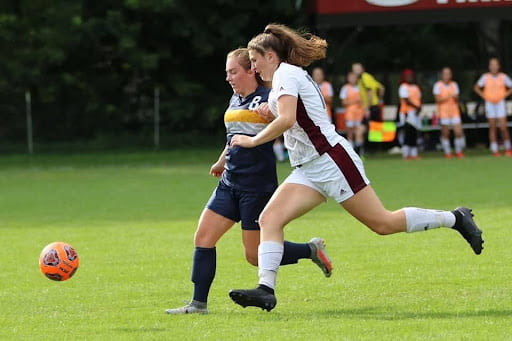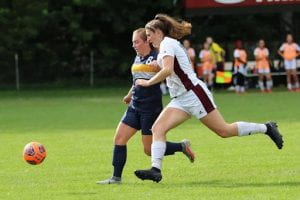Sep 27, 2021 | Bite Me Beaver, Feature, Satire |
Dear Bite, I’m a freshman, and currently my roommate is eating all my snacks. I have told them to ask first, but they are repeatedly ignoring my requests. Please, Bite, what should I do? -Woeful Foodie
Well foodie, If I was you I would consider other food options. Moldy cheese, for example or maybe baby food. Just go to the store and put everything that disgusts you in one big cart. I promise that if you don’t want to eat it, your roommate won’t either!
Dear Bite, I’m a freshman, and every Friday the room next to me gets super loud. I don’t want to be a bother, but I usually do want to be able to relax with my roommate during that time, even if it is not quiet hours. What should I do? -Relaxation Station
Well Station, for now I would recommend that you do nothing. Spend the next few Fridays listening to all the noise, simmering in rage. When you feel that your rage is somewhere between “your father driving” and “stubbing your toe” that’s when you will know it is time to act. Go out and buy some really dark red spray paint, the kind that looks uncomfortably like blood, and spray paint “Noisy people are the first to go” on their door in bold letters. Blood sacrifice and chanting are optional parts of the process, but should be fun nonetheless. Enjoy!
Dear Bite, Recently I’ve started really crushing on this girl, but I don’t really know how to talk to her. We’re only in one class together, and we don’t really have any mutual friends. What do I do? -Big Simp Energy
Well Simp, you’re going about this the wrong way. Small things like getting to know the other person matter little for an enlightened being as yourself. What you need is to make an investment. Put some work in. Get a full mariachi band to follow her around campus serenading her. Get to know her friends so they can sneak her your romantic poetry. Hire a blimp to ask her on your first date. And of course, if all of this does not work, print out your bank paperwork so you can spend your nights crying over all the money you’ve lost instead of your recent rejection. You can’t be sad for two reasons at once right?
Sep 27, 2021 | Feature |
By Ashley Ward, Assistant Editor and Secretary
FARMINGTON — Students are facing feelings of discomfort this semester as The University of Maine at Farmington campus makes an effort to return to how things were before COVID-19. Throughout the last 18 months, with the introduction and removal of COVID-19 barriers, students have been required to consistently relearn the changing social norms of the UMF campus.
Sophomore Katelyn Ryan said that the biggest change between the previous school year was the use of the campus dining hall. “I knew that seating was coming back but I didn’t realize the tables and chairs would be that close,” Ryan said. “I expected to have the option of grab-and-go more readily available too, it feels like a shock to be sitting down with people and using real plates and utensils.”
Second year students are now tasked with the challenge of relearning the social norms around campus. For upperclassmen, they likely have some amount of pre-pandemic college experience under their belt to pull from, but it can be especially daunting to be in to be a sophomore on campus and having no idea how to do anything, yet feeling pressured to have a sense of stability and social grace.
“It’s definitely something that I’ll have to get used to…I think I expected the adjustment to be more gradual rather than going from a 6-foot distance to a 6-inch distance…it’ll just take some time for me to adjust as someone who’s more introverted,” Ryan said.
Senior Brooke Miller said that one of the few obstacles left separating this school year from a pre-pandemic year is the mask policy. “The mask policy is interesting because it’s almost like a fusion between what I remember campus being like before and what I remember last year as,” Miller said. “It’s still a pandemic, but also feels like it’s not…Sometimes it generates a happy feeling in me, but sometimes it makes me feel frustrated because I want this to be over and for all of us to have done our accountability with COVID-19.
UMF, like all campuses across the country, was forced to adapt to COVID-19 in the spring semester of 2020 without much forewarning. Students, new and returning, waited for updates from administrators regarding what their school year might look like upon the return to campus for Fall 2020. This year, however, students have hope amidst their dismay surrounding the potential return of social freedoms, and such is reflected in the removal of social distancing obstacles campus-wide.

Sep 27, 2021 | Feature, Sports, TopStory |
By Page Brown, Contributing Writer

UMF Senior Mckenna Brodeur chases down a ball during a soccer game against the University of Southern Maine.
University of Maine at Farmington student-athletes have returned to the field this year after a full season of Covid-related adjustments. A lack of competition and team interactions coupled with regular testing and mask-wearing took a toll on the mental health of many athletes, who traditionally pride themselves on strength and perseverance. Pushing through a tough practice or game is championed by advertisers, coaches, parents, and society as a whole. Yet, in the post-pandemic world- this narrative has shifted as student-athletes dismantle the warrior mentality and open up about mental health struggles.
The pandemic placed athletes in a vulnerable state, removed from their traditional routine. Researchers at the National Collegiate Athletic Association found that the rates of reported mental health concerns in the fall of 2020 were 1.5 to two times higher than in previous studies.
The increase in reported struggles comes as no surprise to UMF Interim Athletic Director Jamie Beaudoin. “For fifteen years they have had this routine, and COVID has interrupted their routine,” Beaudoin said. “And even though we were able to find ways for teams to practice and compete, it wasn’t what it used to be. This added to student-athletes anxiety as it isn’t what they are used to.”
UMF men’s soccer head coach Blake Hart said he’s seen noticeable shifts in team wellbeing, with players appearing unwilling to practice, nerves surrounding COVID, and poor team chemistry. “As a coach, it was hard to try and lead a team, but more so to watch players not enjoying a pivotal piece in their everyday life,” Hart said.
These struggles were also noticed by women’s soccer player McKenna Brodeur and men’s golf team member Christopher Frey, both pointing towards the lack of team interaction and loss of athletics creating sentiments of anxiety and isolation. Both athletes believe there has been an influx of mental health concerns, and that raising awareness of it and being a supportive outlet for their teammates both mentally and physically is now prioritized. “We all know how fortunate we are to play and we’re enjoying each day together,” Brodeur said.
These comments point to a shift in athletics, with coaches and players alike recognizing the importance of keeping healthy both mentally and physically in order to perform at their full potential. The change in dialogue has been encouraged at UMF. During DIII week last April, UMF athletes attended yoga classes and informational workshops about the importance of resilience and stress management. Guest speakers such as Victoria Garrick, founder of The Hidden Opponent, visited UMF last spring and spoke against the perceived weakness around mental health. Garrick discussed how the lack of visibility paints a misleading portrait on the mental well-being of athletes, an aspect she reiterated in an interview with the New York Times. “I remember Googling and not being able to find anyone or athletes who made me feel less alone.”
Her organization creates the place she was searching for through advocacy programs that argue that being mentally tough is no longer hiding behind a facade of strength, rather it lies in checking in on teammates, speaking up when one is struggling, and advocating for others to do the same. Mental health resources are becoming more readily available and accessible for athletes, granting students a space to grapple with the widespread mental health crisis.
Yet, this is just the beginning of this cultural shift, with Beaudoin using a metaphor to describe the crossing point athletics is at, stating “COVID showed us a bit more of the iceberg. As a coach, I see the tip of the iceberg, but COVID lowered the water and made it so mental health is much more open and out in front of others.” Continuing to hold these conversations and creating spaces for athletes to discuss their mental health changes the paradigm from mental weakness back to strength.

